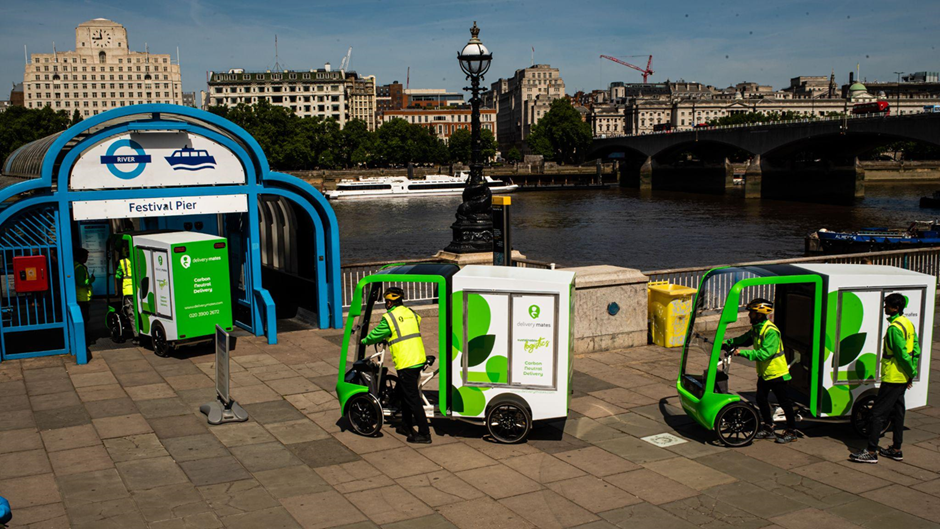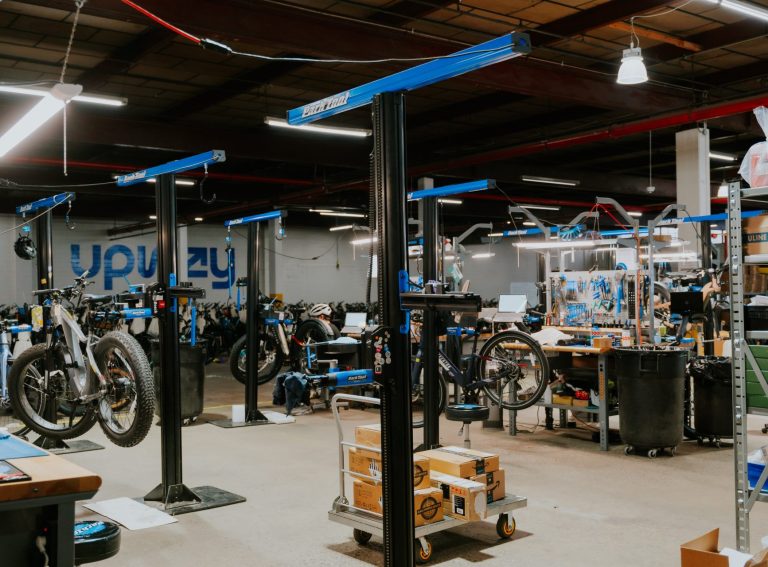Zag examines how six British last-mile players are positioning the UK at the forefront of a sustainable cargo revolution that just needs government support to go full-force
WMG is holding the fourth edition of the UK’s only in-person expo dedicated to micromobility in September.
Gearing up for this, last month Zag looked at how five British e-scooter innovators are driving the UK forward against legislative odds.
This month we turn our attention to how the UK is winning the last mile race.
Globally, if things don’t change, urban last-mile delivery emissions are expected to reach 25 million tonnes of CO2e annually by 2030 in the top 100 cities.
“Last mile accounts for up to 53% of total supply chain cost and the market is predicted to grow by 7% a year to 2030,” says Mark Urbanowski, Principal Engineer at WMG, University of Warwick.
“The UK has its own unique set of requirements for last mile delivery – regulation and policy, transport culture, our urban environments and the weather. In our towns and cities increasing congestion, narrow streets, LTNs, parking and emissions are challenges and opportunities that require an evolution of how we move goods around.
“It’s exciting seeing the innovation coming out of UK businesses, from vehicle OEMs to logistics providers, dedicated to transforming this market and improving our urban spaces for everyone.”
EAV
What they do: E-cargo bike maker EAV offers one of the largest vehicles on the market with the capacity to carry 2,000 litres and a 150 kilogram payload. Its low-maintenance vehicles are used by businesses including DPD, DHL, and Asda. Why? Because they’re fit for purpose. Four wheels for stability, 2m³ of cargo space, and a seated position tailored for quick mounting, the bike is designed to be safe and intuitive to ride in the UK all year round.
Why it matters: EAV’s solution offers an 89% carbon emission reduction, is one quarter the upfront cost of an electric van, and runs at just 0.02p per mile. “EAV was at the forefront of this product category and has had to invent solutions because nothing suitable existed when we started,” the firm’s Director of Engineering Sam Bernard told Zag Daily. “We are now working on the next generation of products, still listening and still inventing, in order to deliver more reliable and better to ride products.”
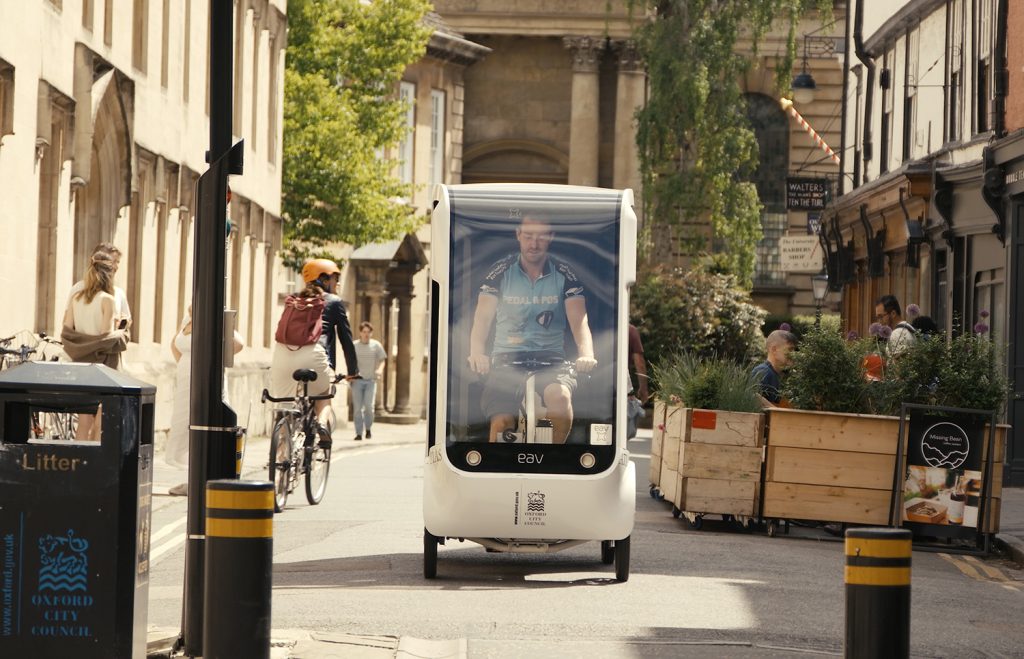
Pashley
What they do: “Pashley has almost 100 years experience in UK design and manufacture of high-quality, safe, reliable, and durable cargo and delivery bikes,” said Pashley’s General Manager Steven Bell.
Pashley has been a supplier to Royal Mail for over 40 years, along with hundreds of other B2B customers, while also making B2B products for a range of customers in over 45 countries.
Why it matters: Pashley’s broad customer base means it understands how to tailor B2B products according to unique challenges. “Our products are built to be functional and durable, whilst at the same time being easy and quick to maintain, with spares readily available from our warehouse,” said Bell. In-house manufacturing and assembly means Pashley can quickly respond to customer’s individual specifications, and its cargo products undergo tests to ensure they’re of the highest standard. “Our longevity ensures that customers can continue to use and service our products long after others have expired. The focus is always on the lifetime cost and environmental impact of the product, rather than just the initial purchase price.
“The electric bike/trike cargo market is still in its infancy and a lot needs to happen to ensure that it isn’t stifled by unsupportive legislation and the automotive lobby.”
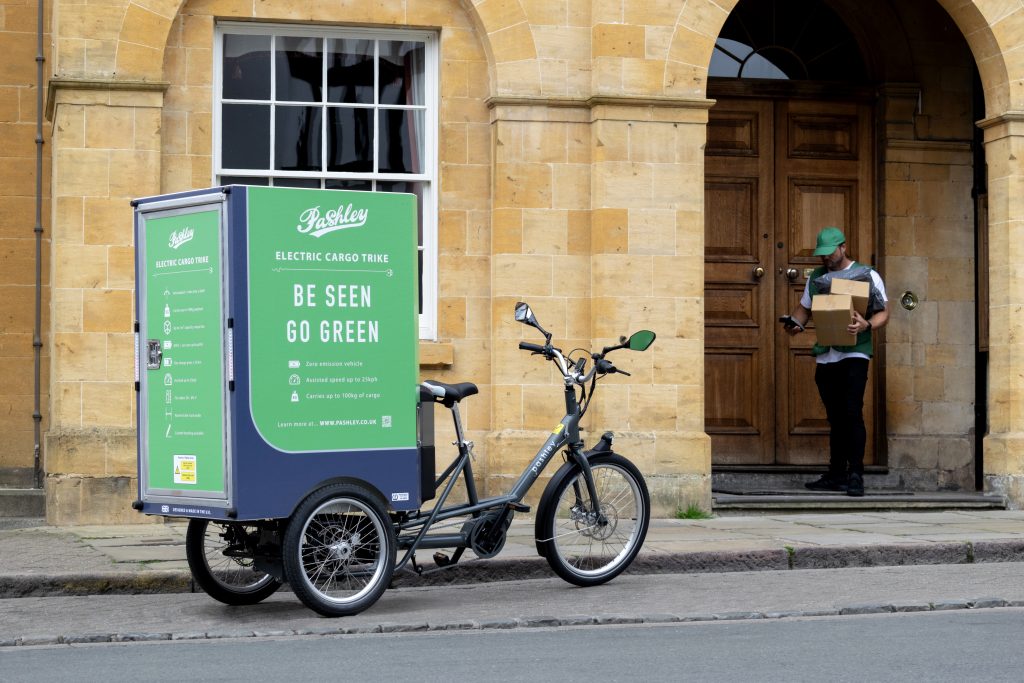
Zedify
Who they are: Sustainable delivery service Zedify is the brainchild of Co-Founder Rob King who launched one of the UK’s first commercial cargo bike delivery services back in 2005. Today, 91% of Zedify’s fleet consists of cargo bikes and 9% are electric vans, with the company taking a vehicle “right-sizing” approach which means vehicles are matched to the size of the job.
Why it matters: Zedify’s 2023 Annual Impact Report found that cargo bikes save an average of 95% more CO2e than diesel vans, and 82% more than electric vans. “Zedify is the only cargo-bike first delivery company operating at scale; we’re in 9 UK cities and make over one million deliveries each year,” said Rob. “E-commerce brands are crying out for super low-carbon last mile deliveries to help them hit net zero goals, so Zedify is designed to make that switch easy, with a service that is over 80% lower carbon than the next best alternative.”
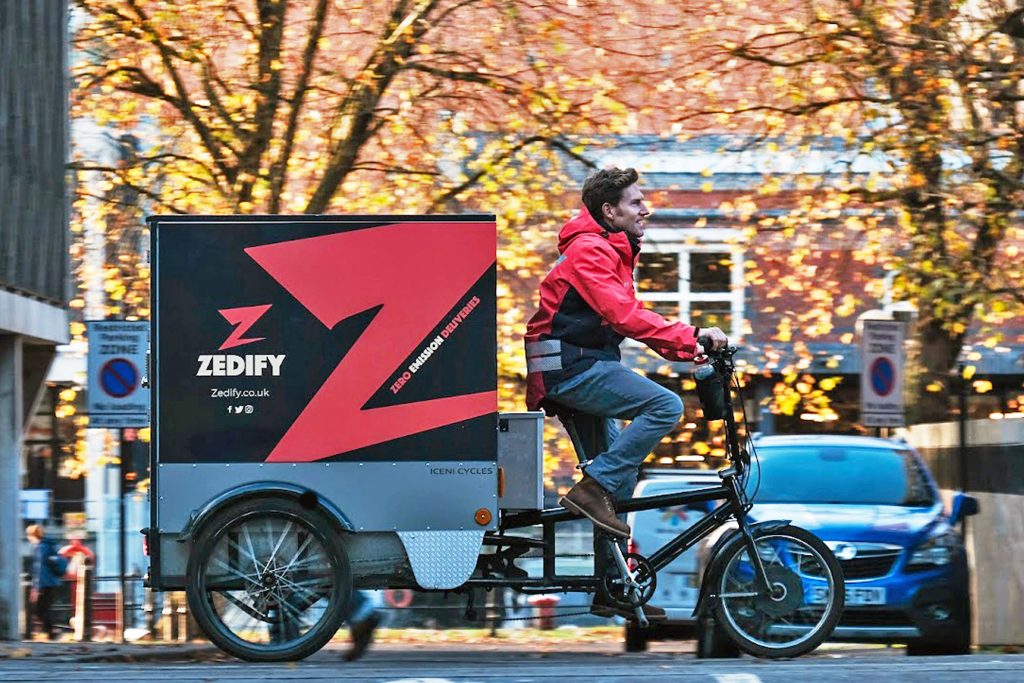
Fin sustainable logistics
What they do: British sustainable logistics operator Fin carries out next-day deliveries to any postcode in London using its exclusive electric cargo fleet. Earlier this year, Fin acquired Stockholm-based Urb-it to fast-track its growth by four. Urb-it had spent over $15 million on its technology, and Fin’s investment is enabling it to utilise Urb-it’s integration with e-commerce giants such as Zara, AliExpress and Shein.
Why it matters: Fin is currently focused on cementing itself in London, where delivery vans were involved in 41% of fatal cyclist crashes and 19% of pedestrian deaths between 2018 and 2020.
“There is an e-commerce boom that is still growing post-covid and consumer expectations for fast, sustainable delivery are increasing,” Fin Co-Founder and CEO Rich Pleeth told Zag. “Fin’s development of AI-driven route optimization and resource allocation specifically for urban environments demonstrates that there is incredible technology to solve complex last-mile challenges from the UK.”
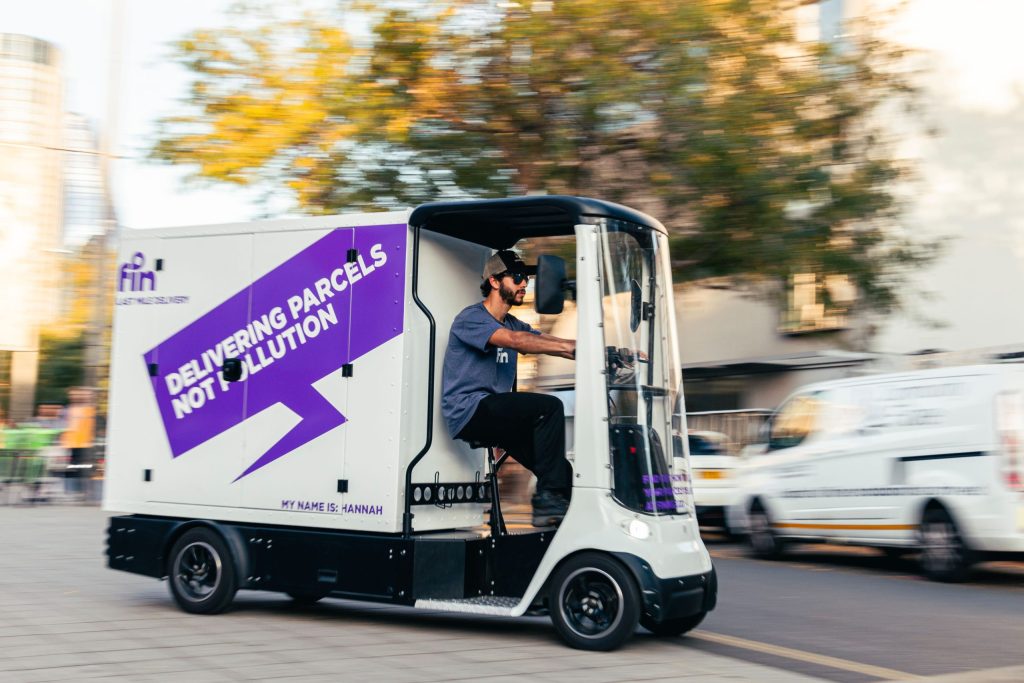
Fernhay
What they do: Fernhay’s eQuad vehicle can move 2m3 200 kilogram boxes from an out-of-town depot straight to the customer’s door. “Our customers are van drivers and fleet owners, not cyclists; we therefore focused on areas such as crash capability, rider safety, and the most robust product in the new category of logistics cycle that Fernhay created,” said Fernhay Founder Robin Haycock.
Fernhay operates on European and US roads and is used by the Department of Transport, New York City Parks, Vorboss, fin, and UPS.
Why it matters: The operator is collaborating with Cambridge Council and UPS in the creation of a microhub which uses Fernhay’s eQuads to sustainably deliver packages. “Nobody else does this at an industrial level currently and you can only achieve this kind of innovation through R&D spend.
“In the case of last mile innovation, the culture is right in the UK, we have dense old cities with congestion issues; we are rapidly shifting to online, rather than the shopping experience, and we have an education system that remains one of the best in the world and focuses on developing creative skills in individuals. Fernhay benefited from this and that’s why we’ve been able to create a system that is green on the top and saves our customers money on their bottom lines. It is certainly a significant contributor to why we found investment money from US private equity.”
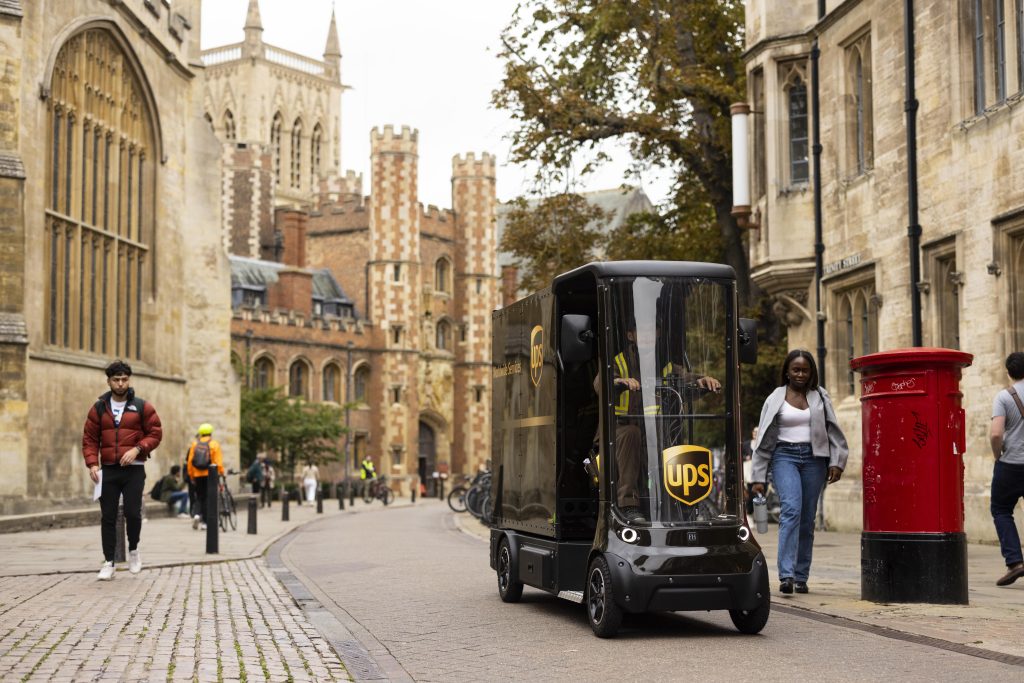
Delivery Mates
What they do: Delivery Mates has become one of London’s most reputable sustainable logistics providers having delivered almost three million packages in 2023.
Why it matters: The last-mile provider is not afraid to innovate, consistently launching new pilots projects to expand its impact. From electric water shuttles that carry cargo across the River Thames and micro-hub logistics trials with Westminster City Council and Cross River Partnership that has set the groundwork for a London-wide logistics revolution, not to mention its acquisition of XeroE which allows clients to book on-demand delivery services across London, Bristol and Manchester – Delivery Mates has become a centrepiece in driving this movement forward.
